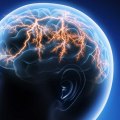The American Medical Association (AMA) has long recognized addiction as a disease, classifying alcoholism as a disease in 1956 and including addiction in 1987. Addiction is a complex condition that affects both the body and brain, and involves compulsive behavior with the use of one or more substances regardless of social and health consequences. It is caused by a combination of behavioral, environmental, and biological factors, and there is no single influence that determines whether a person will become addicted to drugs. The likelihood of developing an addiction varies from person to person, and for those who do become addicted, it is a progressive and recurrent illness that requires intensive treatments and ongoing aftercare, monitoring and family or peer support to manage their recovery. Some argue that addiction is not a disease because some addicted people get better without treatment.
However, research has resulted in treatments that can help addicts return to a normal life. Most medical associations, including the American Medical Association and the American Society for Addiction Medicine, define addiction as a disease. As with other illnesses, addiction can be effectively treated with medications and professional treatment programs. People with the most severe form of addiction usually need intensive treatment followed by lifelong treatment of the disease.






